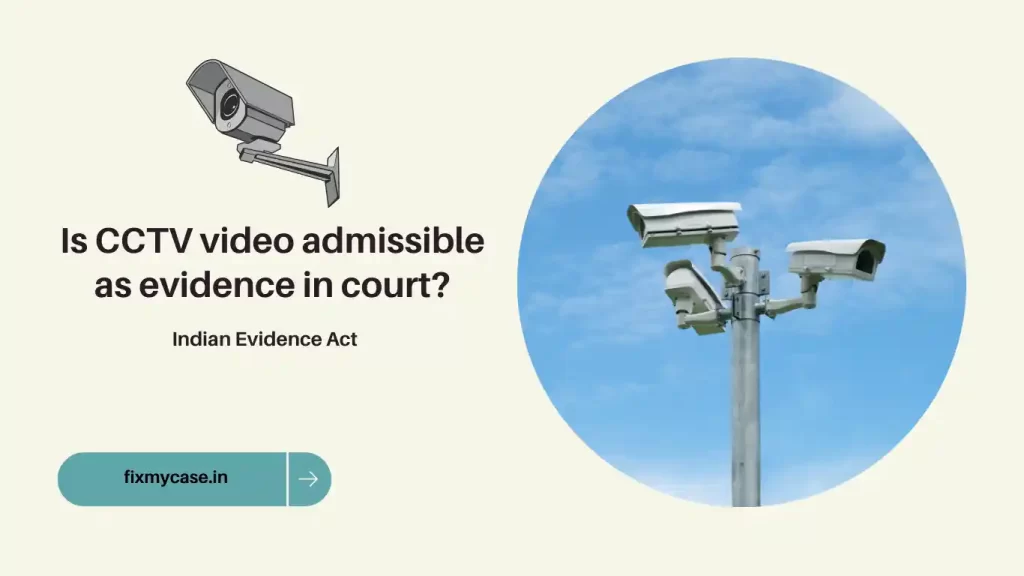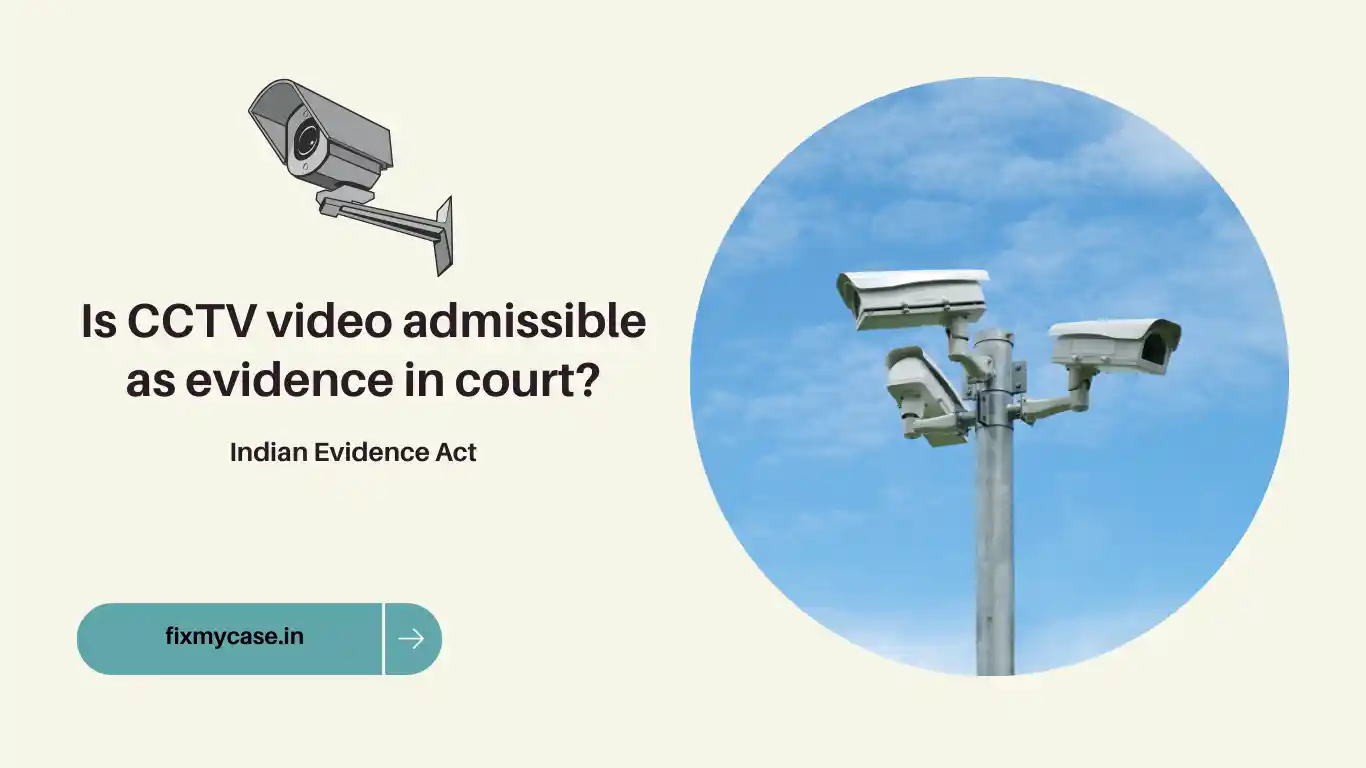Is CCTV video admissible as evidence in court?
Everyone has a question whether video evidence can be used as evidence in court cases in India and the answer to that question is yes video evidence can be filed as evidence in court. Courts will accept CCTV footage as evidence as it is irresistibly important evidence in cases.
Admissibility of CCTV footage as evidence is governed by the Indian Evidence Act, 1872 and the Criminal Procedure Code, 1973.
Section 65B of the Indian Evidence Act specifically deals with electronic evidence including CCTV footage. According to this section, any information contained in an electronic record, such as CCTV footage, shall be deemed to be a document and shall be admissible in evidence in any proceeding without further proof of the original if the following conditions are met:
CCTV footage from the original device is produced in the court, or the original device is produced in the court.

Along with the CCTV footage, the electronic recording containing the CCTV footage should be identified and the manner in which it was produced, along with the certificate required under section 65B(4) of the Indian Evidence Act.
The certificate must be signed and submitted by the person who maintained the electronic record or who had custody or control of the device at the relevant time.
A person providing CCTV footage as evidence is required to comply with the above conditions. Failure to do so will result in the court refusing to admit CCTV footage as evidence.
It is important to note that the admissibility of evidence, including CCTV footage, is ultimately at the discretion of the judge.
Before accepting the CCTV footage as evidence, the judge will consider its relevance, reliability and fairness.
Additionally, the jurisdiction of the court may affect the admissibility of CCTV footage as evidence, as different courts follow their own procedures and rules of evidence.
It is best to consult with an attorney familiar with litigation practice to find out the details of your case.

